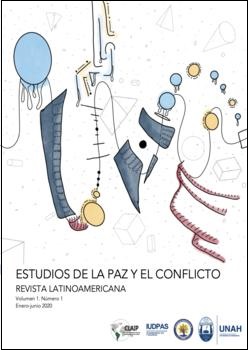PEACE AND SECURITY ENGENDRATED, SUSTAINABLE AND CULTURALLY DIVERSE
DOI:
https://doi.org/10.5377/rlpc.v1i1.9519Keywords:
Engendered and sustainable peace, patriarchy, equality, cultural diversity, sustainability, nonviolent conflict resolutio, gift economy, solidarity, AnthropoceneAbstract
This analysis links the existing violence in Latin America with the imposed development model, which has deteriorated the well-being of the majority of people and their human health. The implementation of this model has contributed to food insecurity, polluted pristine waters, destroyed jungles and forests, and forced millions of people to leave their homes due to socioeconomic crises, poverty, public insecurity, climate change and associated disasters. From an engendered and sustainable peace and security perspective the reference object of territory and national sovereignty may be changed from the traditional political-military conception that often resulted in wars, crises, misery and permanent conflicts. From an engendered and sustainable peace and security approach based on equality and sustainability, threats are no longer caused by other countries and their weapons, but from the dominant patriarchal system that has structurally developed physical violence, exploitation, discrimination and inequality. This text offers both a framework for a systemic analysis of socio-environmental conditions and conflicts; and suggests concrete actions that promote equality, equity, solidarity, environmental sustainability and nonviolent conflict resolution within a gift economy or economy of solidarity in a diverse and sustainable world.
Downloads
1138
Downloads
Published
How to Cite
Issue
Section
License
The journal's contents are published under a Creative Commons Attribution 4.0 license (CC BY 4.0). This license allows third parties to share (copy and redistribute the material in any medium or format) and adapt (remix, transform and create from the material for any purpose, including commercial), as long as the authorship and first publication in this journal (Revista Latinoamericana Estudios de la Paz y el Conflicto, Universidad Nacional Autónoma de Honduras - Consejo Latinoamericano de Investigación para la Paz, DOI of the work) is acknowledged, a link to the license is provided and it is indicated if changes have been made to the original. The terms of the license are available online at http://creativecommons.org.




